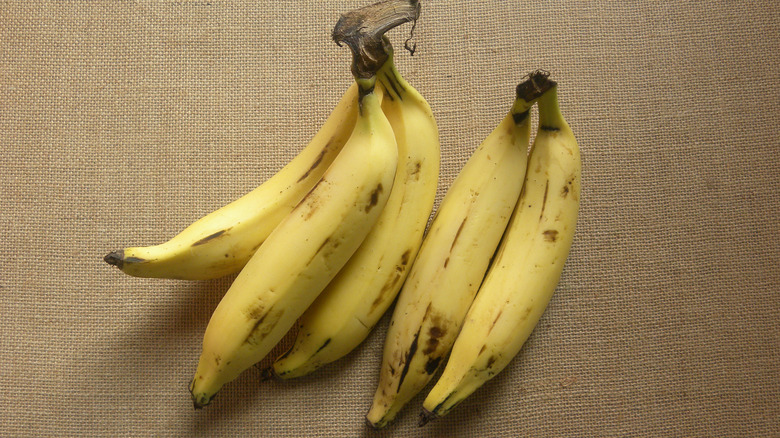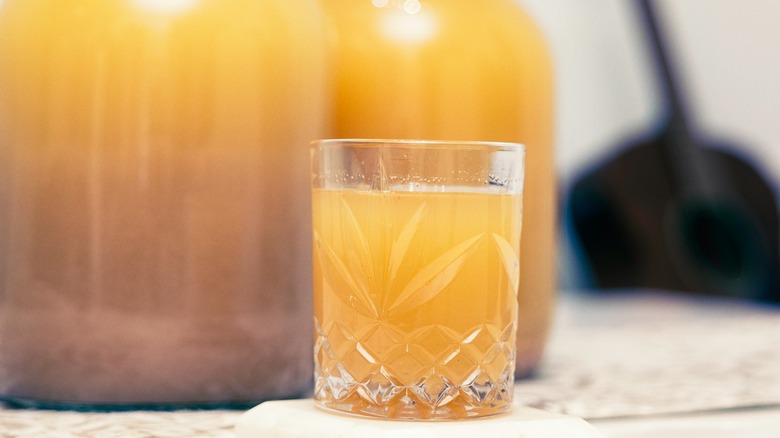The Scientific Reason Overripe Bananas Contain Alcohol
Fruits have long harbored sweet culinary secrets, not the least being their capacity to transform into a buzzy alcoholic beverage. Grapes in wine and brandy lead the fruity parade, followed by apple ciders and juniper berries for gin. There are also pineapple, papaya, guava, pawpaw, tangerine, avocado, and other tropical fruit wines containing fermentable sugars, according to an article published by the National Research Council. But one very common fermentable fruit, available in any supermarket and a staple of most home kitchens, is the well-loved banana.
The fact that overripe bananas contain alcohol, sans any calculated fermentation efforts, is typically a surprise to most consumers. However, SFGate reveals that these fruits stored at 60 degrees Fahrenheit fully ripen in roughly eight days from the time they're plucked from the tree. When banana skins turn brown, they're at ultimate ripeness for making deserts such as the Deep South favorite banana pudding or banana bread. But a fine line distinguishes sweet from fermented, at which point bananas start harboring alcohol. There's a scientific reason why that happens.
Banana booze, naturally
It's important to note the difference between naturally fermented banana alcohol and popular banana-based cocktails. From banana daiquiris to banana bliss and Bahama mamas, dozens of cocktails put the curvy yellow fruit front and center, as showcased by Punch. But those drinks utilize standard bananas or banana flavoring as an ingredient to enhance a cocktail — rather than using the fruit itself as the source of alcohol.
As with sugar mash from other fruits, fermentation in bananas occurs when stored in warm temperatures, explains the National Research Council. Airborne yeasts convert the fruit's sugar into alcohol and carbon dioxide, which is used for making wine or beer in some African countries, as depicted in a YouTube video by Next Media Uganda. The natural version of this process is known as ethanol fermentation, using the fructose, sucrose, and glucose sugars present in bananas, according to Home Kitchen Talk. They also contain yeast, which adds to spontaneous fermentation the more they ripen, resulting in about 0.2% alcohol by volume (ABV), per Abbeycare.
Should you worry about consuming alcohol through overripe bananas? Compared to the 0.2% ABV in these fruits, alcohol-free beer sold in the United States can contain up to 0.5% ABV, notes Healthline. However, it's recommended that pregnant women and others sensitive to the effects of alcohol consumption avoid even small percentages of alcohol, regardless of the source.

